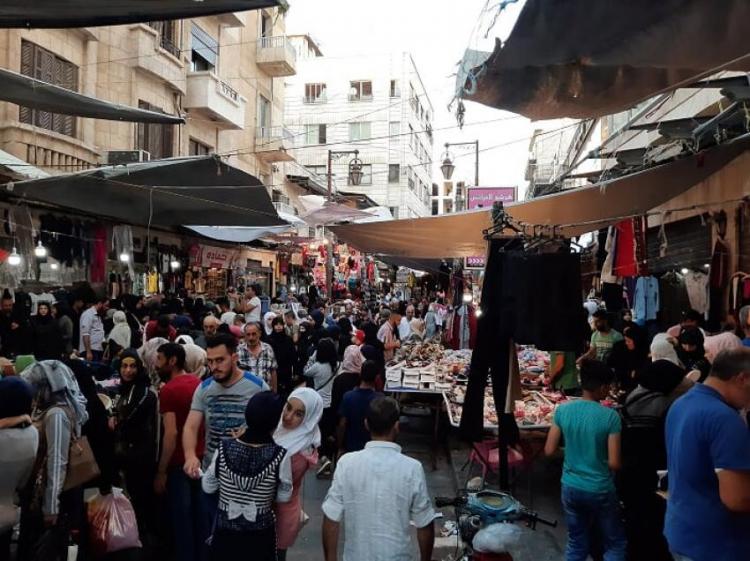Economic expert calls for applying 80s economy as basic materials’ prices follow the dollar
Northern Syria – North-Press Agency
The prices of basic foodstuffs have risen in Damascus recently, at a range between 25-75 Syrian pounds, where sugar and rice topped the list which have been affected by the rise, in conjunction with the increase of the dollar exchange rate in the parallel market.
The price of a one kilogram of sugar in the shops has reached SYP 350 at a retail sale price, after it was SYP 275, while the rice price has reached 725 after it was SYP 650, an increase of up to SYP 75 each, which exceeds the value of the exchange rate appreciation in the parallel market.
The prices of other basic commodities of dairy and canned cheese have also increased by about 50 liras for each product, bringing the price of one kilo of pasteurized yogurt to SYP 450 after it was SYP 400.
The price of coffee has reached 300 Syrian pounds for one kilogram, and a tissue box has risen to about SYP 50.
Meanwhile, Ammar Youssef, a member of the committee of protecting the Syrian pound law, has urgently called for the exchange market control.
He pointed out that the goal is to “protect those citizens with very weak purchasing power”, according to the pro-government newspaper Al-Watan.
Youssef called for the implementation of the law of the 80s of the last century, by “criminalizing the possession and using of the dollar outside the official offices, and close exchange companies, and restrict the dollar for the basic need fully through the government, and capture those who smuggle the dollar regardless of the amount”.
He also explained that the economy of war must be applied, therefore, the way the country dealt with the exchange market in the 80s must be adopted today.
Ammar Youssef noted that the plan of the law has been “left in the drawers of the government”, although it was in force since 2013, but it has not been passed until today, he believes that the country “needs a stronger law, by criminalizing those who trade and possess foreign materials”.
The Central Bank of Syria has published a study of the impact of the dollar in the parallel market on commodity prices, between the beginning of July 2018 and the end of May 2019.
The study showed that the price of materials such as rice, sugar, tea, coffee and mate (cimarrón) is not related to the exchange rate in the parallel market.
The Central Bank reasoned the matter to the pricing of these materials by the Committee on the basis of official exchange rate, as it’s not affected by exchange rate fluctuations in the parallel market.
On the other hand, some sources indicated that the People’s Assembly will discuss with the government the issue of the high prices of materials during the eleventh regular session of the People’s Assembly on 15 September.

